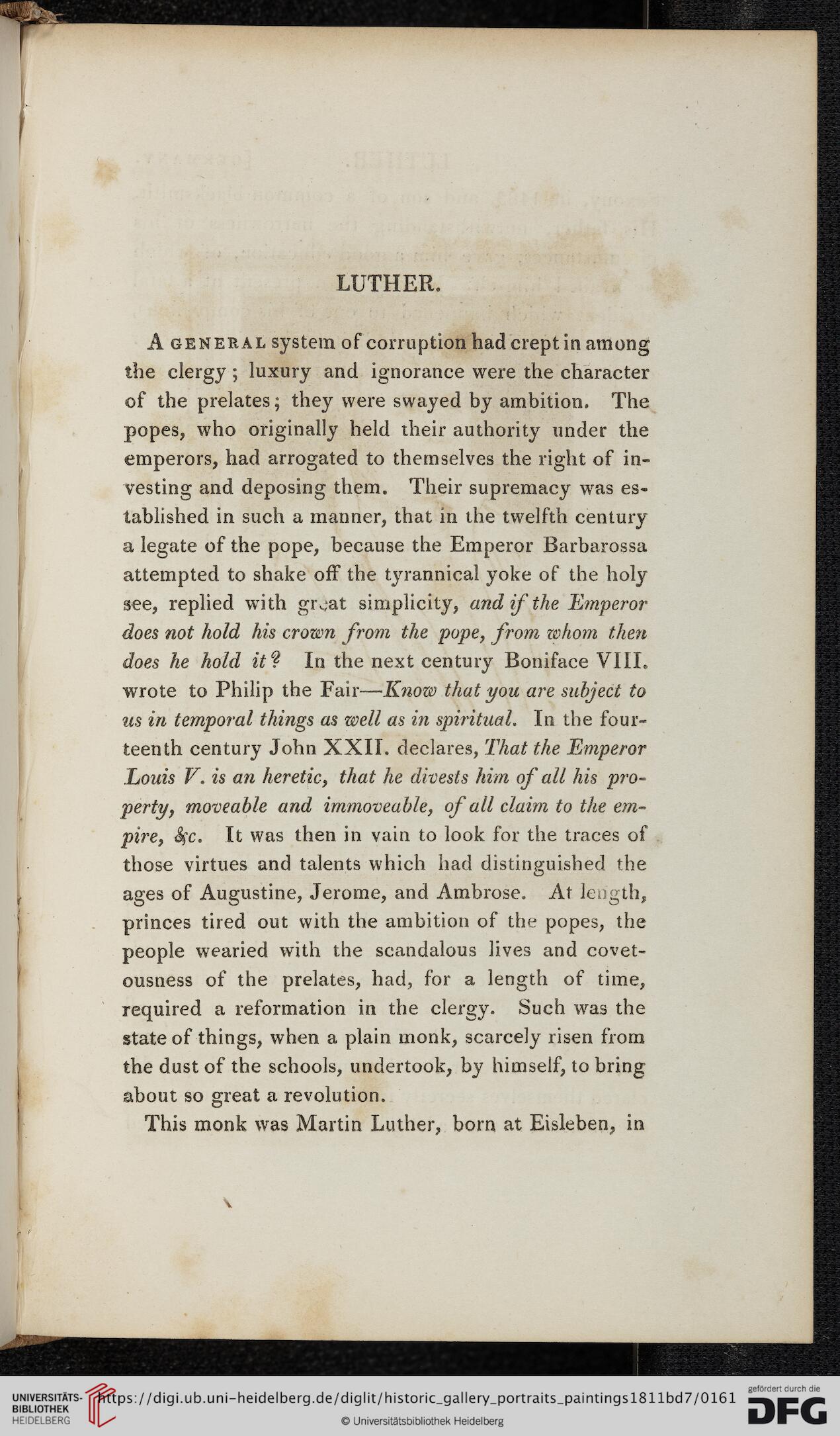LUTHER.
A general system of corruption had crept in among
the clergy; luxury and ignorance were the character
of the prelates; they were swayed by ambition. The
popes, who originally held their authority under the
emperors, had arrogated to themselves the right of in-
vesting and deposing them. Their supremacy was es-
tablished in such a manner, that in the twelfth century
a legate of the pope, because the Emperor Barbarossa
attempted to shake off the tyrannical yoke of the holy
see, replied with great simplicity, and if the Emperor
does not hold his crown from the pope, from whom then
does he hold it 9 In the next century Boniface VIII.
wrote to Philip the Fair—Know that you are subject to
us in temporal things as well as in spiritual. In the four-
teenth century John XXII. declares, That the Emperor
Louis V. is an heretic, that he divests him of all his pro-
perty, moveable and immoveable, of all claim to the em-
pire, fyc. It was then in vain to look for the traces of
those virtues and talents which had distinguished the
ages of Augustine, Jerome, and Ambrose. At length,
princes tired out with the ambition of the popes, the
people wearied with the scandalous lives and covet-
ousness of the prelates, had, for a length of time,
required a reformation in the clergy. Such was the
state of things, when a plain monk, scarcely risen from
the dust of the schools, undertook, by himself, to bring
about so great a revolution.
This monk was Martin Luther, born at Eisleben, in
A general system of corruption had crept in among
the clergy; luxury and ignorance were the character
of the prelates; they were swayed by ambition. The
popes, who originally held their authority under the
emperors, had arrogated to themselves the right of in-
vesting and deposing them. Their supremacy was es-
tablished in such a manner, that in the twelfth century
a legate of the pope, because the Emperor Barbarossa
attempted to shake off the tyrannical yoke of the holy
see, replied with great simplicity, and if the Emperor
does not hold his crown from the pope, from whom then
does he hold it 9 In the next century Boniface VIII.
wrote to Philip the Fair—Know that you are subject to
us in temporal things as well as in spiritual. In the four-
teenth century John XXII. declares, That the Emperor
Louis V. is an heretic, that he divests him of all his pro-
perty, moveable and immoveable, of all claim to the em-
pire, fyc. It was then in vain to look for the traces of
those virtues and talents which had distinguished the
ages of Augustine, Jerome, and Ambrose. At length,
princes tired out with the ambition of the popes, the
people wearied with the scandalous lives and covet-
ousness of the prelates, had, for a length of time,
required a reformation in the clergy. Such was the
state of things, when a plain monk, scarcely risen from
the dust of the schools, undertook, by himself, to bring
about so great a revolution.
This monk was Martin Luther, born at Eisleben, in




